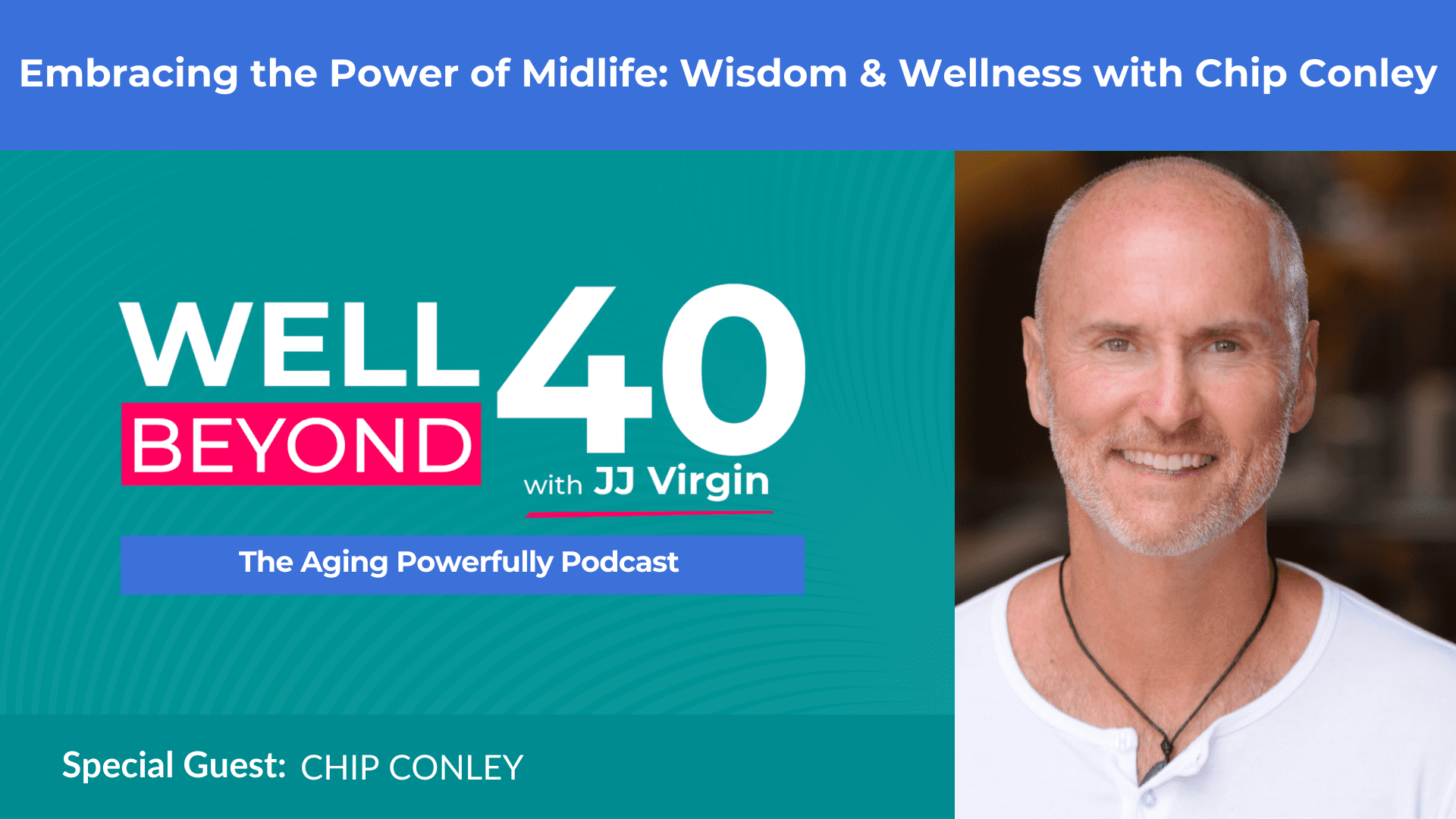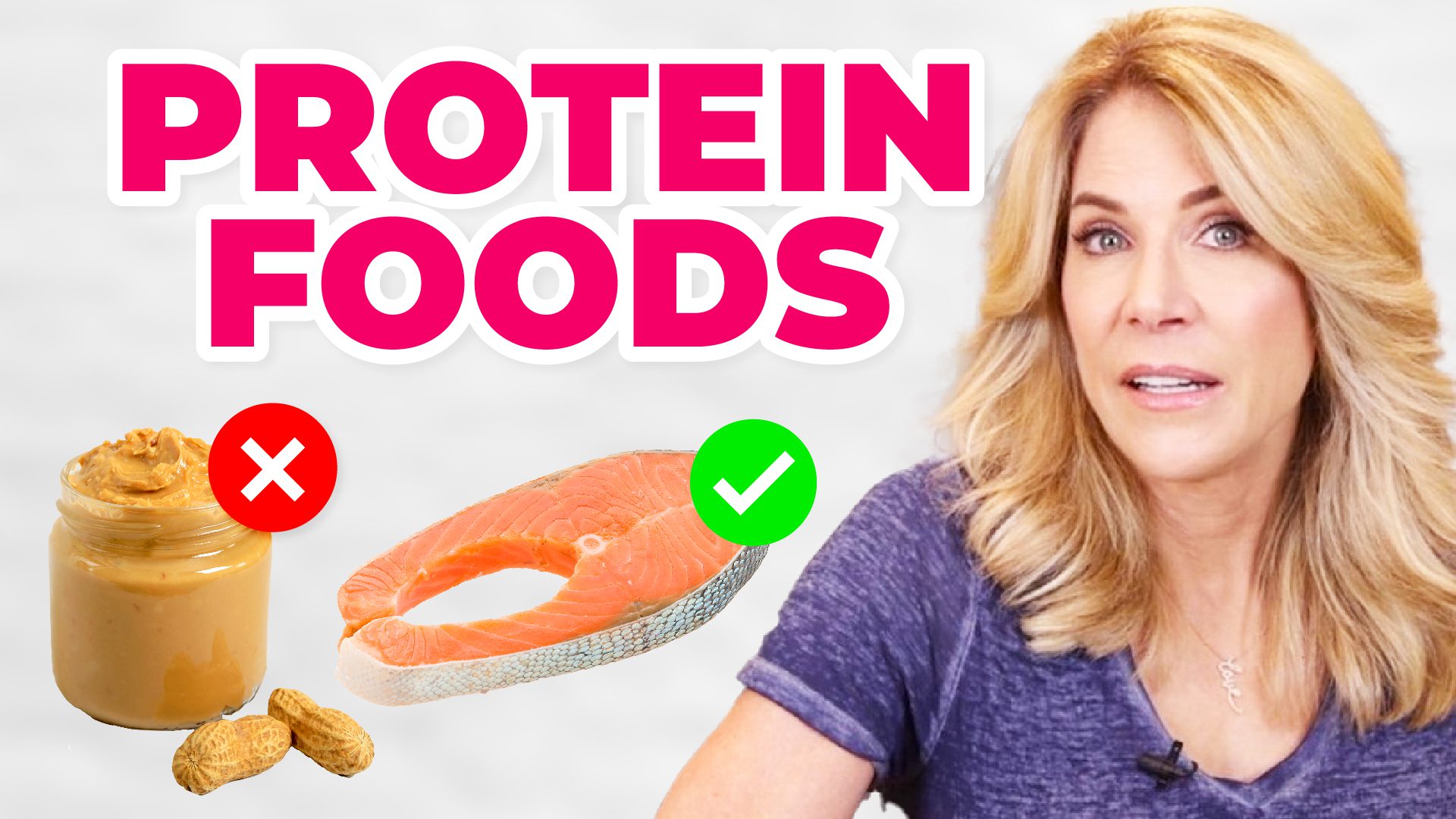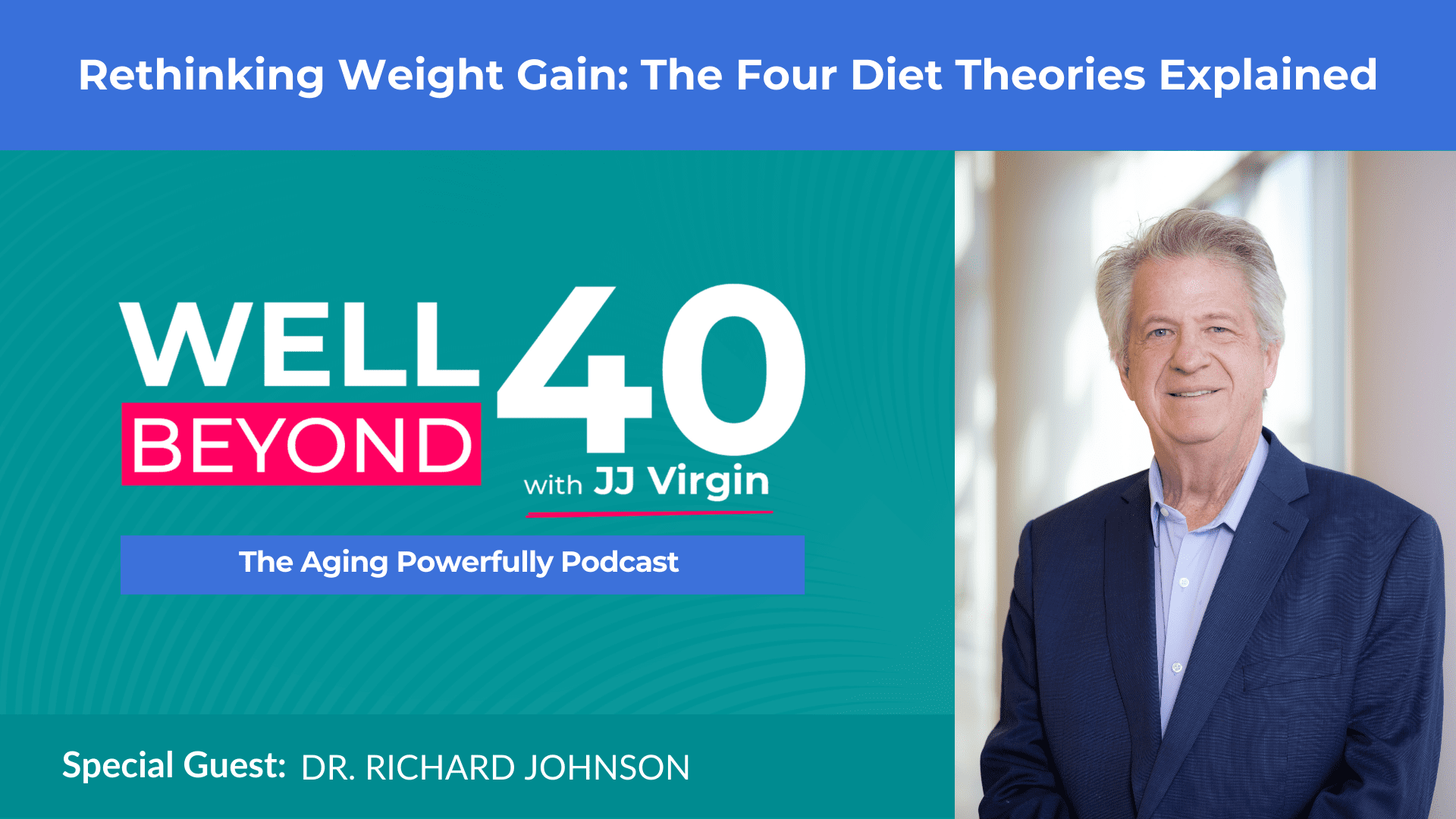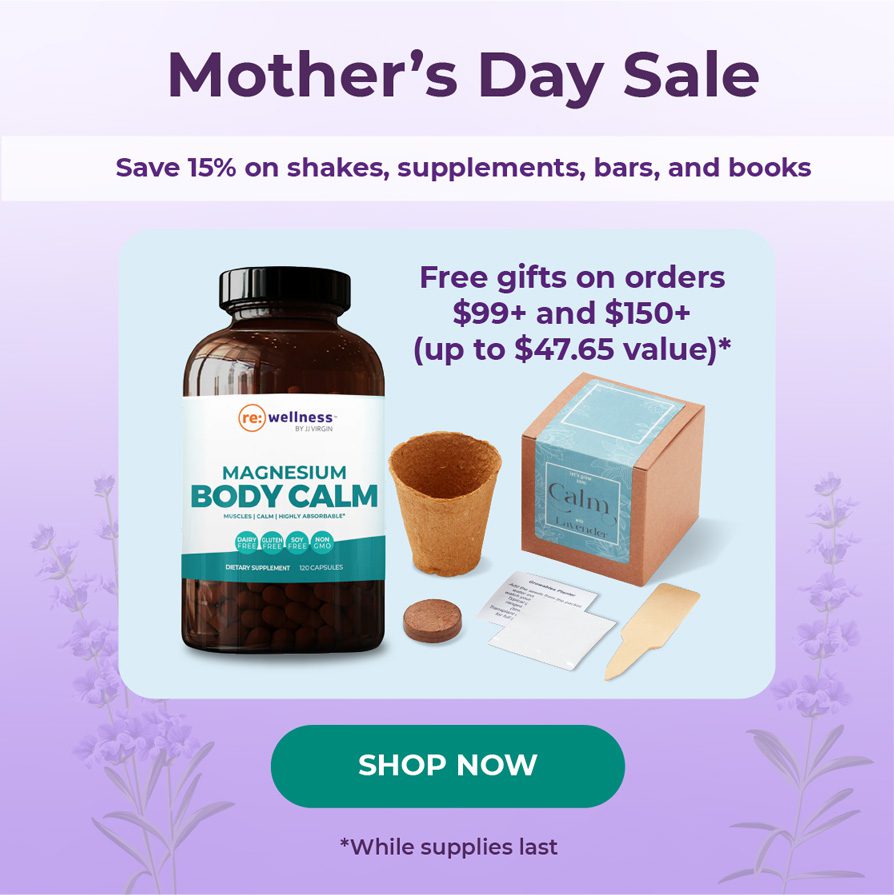JJ’s Favorite Digital Health Tools
Your habits dictate your health, so what's the best way to track them? With so many options for wearable devices out there tracking every possible marker of wellness, it can be hard to choose the right one. In this episode, JJ shares the specific metrics she wants to be able to track with activity monitors, inconsistencies with the wearable technology to be mindful of, and her favorite smart watch brands that she recommends.
Mentioned in this episode:
ATHE_Transcript_Ep 492_Which Features Are Must-Haves When Selecting a Wearable Health Device Like an Apple Watch?
JJ Virgin: [00:00:00] Which features are must-haves when selecting a wearable health device like an Apple Watch.
This is JJ Virgin four-time, New York Times bestselling author, celebrity nutrition expert, and fitness hall of famer. I've been on a lifelong quest for answers to the toughest health. And now I'm sharing what I found with you. Welcome to ask the health expert
Josie from Facebook asks which features are must-haves when selecting a wearable health device like an Apple Watch. All right. I am gonna unpack this because as usual, it depends. I'll be right back with the answer.[00:01:00]
Okay. So if you've been listening to any of my lives or podcasts, you know, the joke I make is I wear an aura ring and if and an apple watch, and then I choose which one gives me the, the information I want to see, which means like if, which one's given me the better night's sleep. So here's what I would say with any of these things.
First of all, as you know what you measure and monitor, you can improve . So I love looking at specific metrics and I'm gonna give you a couple that I really like to look at and why I like to look at them. So that's the first part of it. And then the second part of it is they all have something that's inconsistent.
You know, I mean, when you're looking at sleep, how's it going to check? It's gotta check your pulse. It's gonna check your temperature, it's gonna check your movement, and it's then going to make predictions. Are you in light sleep? Are you in deep sleep? Are you in REM sleep? Are you [00:02:00] awake? Are you restless?
Right? What you're really looking for is the same, using the same one time after. Because if you flip from different ones, like my joke of using, you know, the aura ring or the apple. At one point I was wearing the oura, the apple and the Garmin. It's like, holy smokes. So the first thing I'm gonna wanna look at, and you know, when you look at these things, most of what you're gonna track is sleep and, and movement, right?
And there's a couple things that you wanna know for sleep. You really wanna know. When we look at optimal sleep being somewhere between seven and nine hours and that's a whole nother podcast on what's optimal sleep. But there's a difference between time in bed and sleep. And so you might go, Oh, I get eight hours of sleep at night.
I go to get in bed at 10. I'd get up at six. Well, no you don't because you didn't. Fall straight asleep when you got in bed and stay, stay asleep the entire time. So what you're looking for from one of these devices to tell you, Hey, how [00:03:00] quickly did you fall asleep? Did you stay asleep? And then what about waking up?
Because as you know and or don't know, but if you start to unpack sleep, you realize we have these 90 minute increments where we start to go through sleep cycles. And so what you're really looking for is, are you fully going through each of these sleep cycles? Because it, that's one of the big tests of sleep quality.
So that will help you look at and go, How am I doing on, on light? And REM and deep with REM and deep, of course, being the ones that you're really wanting to focus on. And what about restlessness? Now the next thing that you can get from them is your HRV and your oxygen and what? And your and your heart rate.
So obviously you're getting heart rate because you're getting heart rate variability, but these are the other ones that are great to look at because your heart rate variability is really gonna be a test of, you know, how well are you recovering, How's your overall fitness and sleep, of course, [00:04:00] feeds into that.
So those are the things I'm gonna look at from one of these devices, and you'll get that at the Garmin. You'll get that from the Apple Watch. You'll get that. the oil ring. But again, none of them are a hundred percent accurate. So it's really what you'll use and where, and keep on . There was this, when it, when all this first tracking first started, I went to a press press conference because this new company had started one that you wore on your forehead.
And so they gave us all this thing to wear on our forehead that night, and the next morning we were gonna come down with our data. The problem was I couldn't sleep with that thing on my forehead. It just kept me up. And I kept thinking about, as I was trying to sleep with the thing on my forehead, I thought, Oh my gosh, I'm gonna have the worst sleep in this room.
Like, and it kept getting later and I couldn't sleep. And it was later and I couldn't sleep. And then I finally fell asleep, and then I discovered that in the middle of sleep I threw the thing off my forehead, . So there would be one not to use, right? So what is the thing that you will use? So that's the [00:05:00] first part.
And then the second part of it is really monitoring your. . Right? And what do we want to know there? We wanna know. I think most importantly, like you know when you went to the gym, right? And you're knowing like the level of how hard you're working out, what I wanna know is the rest of the time, what are you up to?
Are you standing more than sitting? Are you moving as much as possible? And that's the other thing that I look for. With this is what's going on with your movement and is it tracking you and telling you, Hey, get up, get up and go move. And so that's the other one that I would look at here. So we're looking at sleep, we're looking at hrv, and we're looking at movement and movement reminders so that you are not sitting all the time, cuz we've all heard that Sitting's the new smoking.
Right. All right. And again, most important is pick one you'll use. And what you monitor, you can improve. So focus on getting those metrics where you want 'em to be. Cuz guess what? A [00:06:00] like a, a lean a, a healthy person. Will be lean and fit in all of that. If you put the right habits in plates, the habits are gonna predict how you know how healthy you are.
Now, you might have to do some other things intervention wise if you got some stuff going on, but for the most part, your habits are really gonna dictate your health. So this helps you get those healthy habits into place.
This is JJ with Ask the Health Expert. I answer your questions weekly. Plus I interview the top experts. And wellness, so make sure you never miss a show by going to subscribetojj.com. Yep, it's that easy. I'll see you next time.
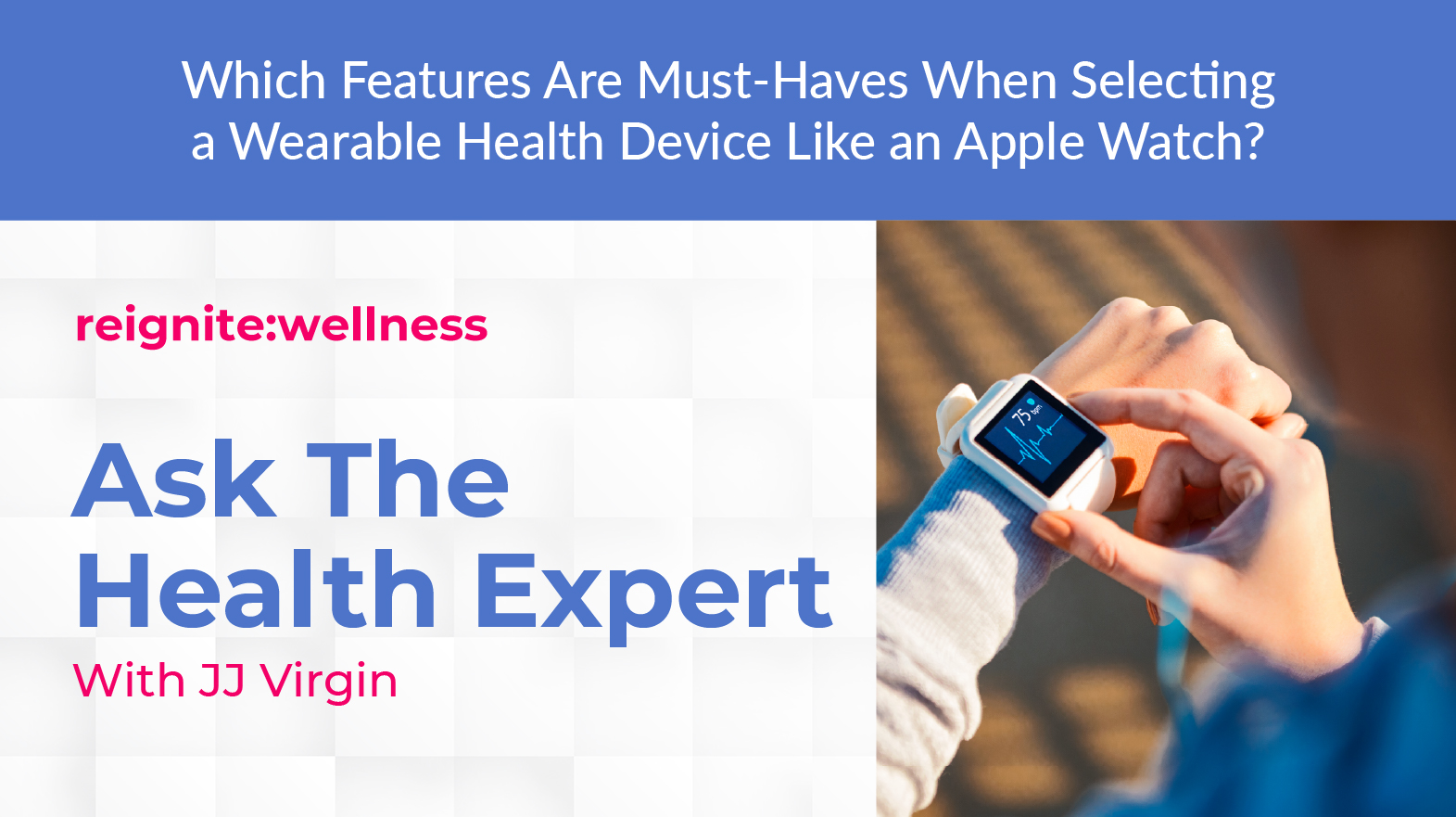
 Subscribe to our show
Subscribe to our show 